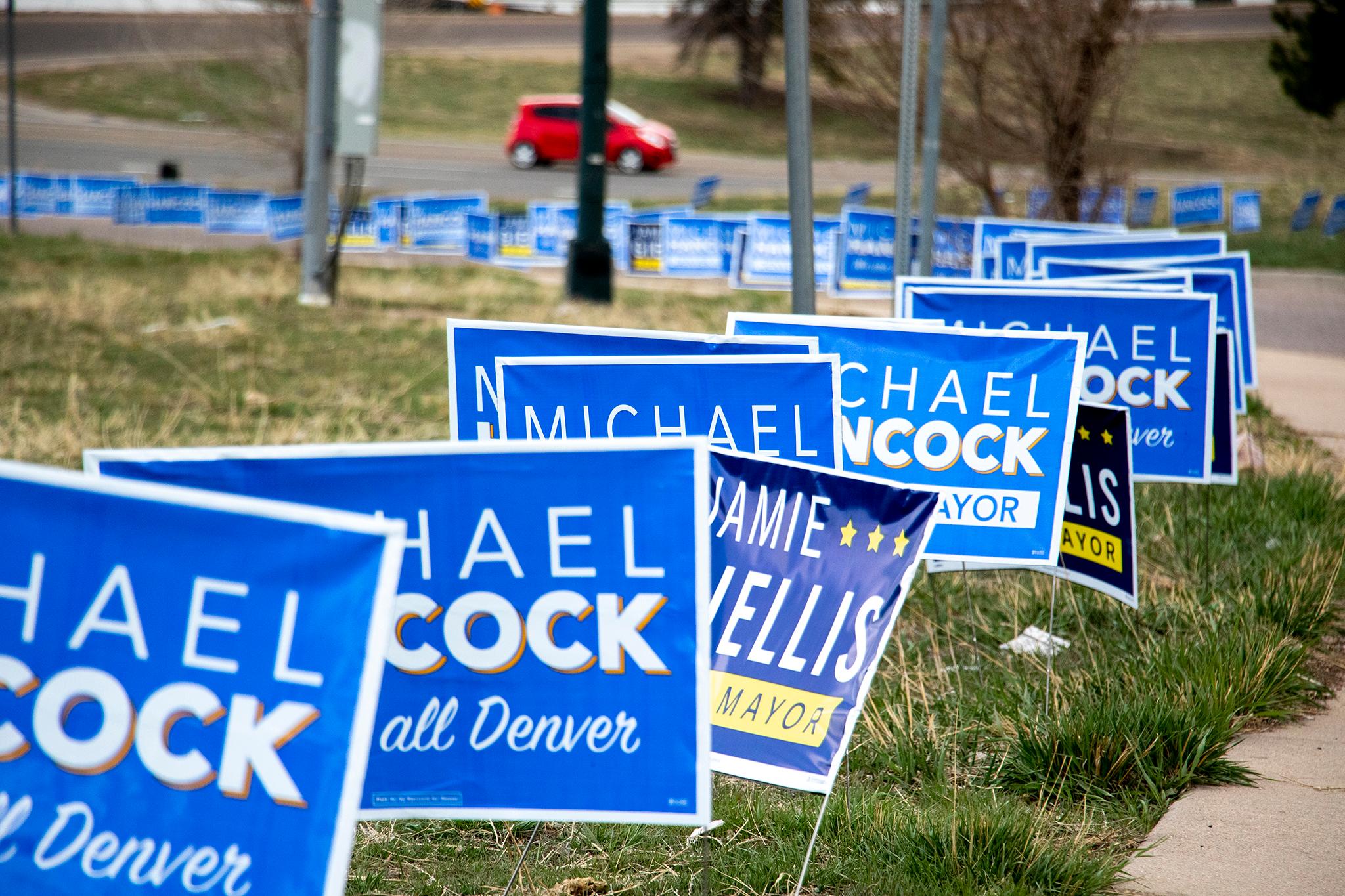Denver City Council approved big changes to campaign finance rules and the city’s voter-approved Fair Elections Fund.
Voters originally passed the policy in 2018. It’s meant to level the playing field between have and have-not candidates by offering valuable matching funds to political candidates who participate.
The plan was first implemented in the 2023 municipal election — the one where Mike Johnston was elected as mayor. Johnston received $600,000 in taxpayer dollars. Like other participants, he got $9 of city money for every $1 he raised. At the same time, Johnston also benefited from millions of dollars in independent expenditures.
In total, taxpayers gave $8 million to candidates to run their campaigns under Fair Elections Fund rules.
Councilmembers Amanda Sawyer and Darrell Watson said the system had a lot of room for improvement: clearer rules, more funder transparency, and stricter limits on how money can be spent.
Ban anonymous donations.
Sawyer and Watson argue cash contributions make it too easy for donors to hide their identities. That makes elections and campaign funding less transparent, potentially making it easier for candidates to game the matching system by contributing bogus seed funds.
Donors would have to be identified to get the 9-to-1 matching funds. There would continue to be a $50 limit on donations that receive matching funds.
Plenty of other Colorado municipalities ban anonymous contributions in municipal elections, and proponents said it´s time for Denver to catch up.
Now, election-wide, it has.
Fix the debates
Candidates benefiting from the Fair Elections Fund are required to participate in debates that are overseen by the city.
The 2023 debates were riddled with questions about fairness and equity. The most blunt example was when Councilmember Chris Hinds could not access a debate stage because there was no ramp or elevator for wheelchairs.
Other candidates raised questions about whether debate moderators — in required Fair Elections Fund debates — were neutral.
Should there still be a mandatory debate if just one Fair Elections Fund candidate is running?
The changes to the law, proponents say, will require “fair and neutral” questions.
Debates will only be required if more than one Fair Elections Fund candidate is in a race. One will be required for the general election and another for a run-off election.
The city will contract with a third party — one not affiliated with or endorsed by parties or candidates — to broadcast the debate. Debate sites must be accessible.
Coordination must occur with at least ten days' notice.
Clarify how Fair Elections Fund money can’t be spent.
First things first: No spending taxpayer money on booze, weed or tobacco.
The new law also bans the following uses of Fair Elections money:
- Making gifts over $50
- Paying fees, fines and other penalties to the city
- Buying prepaid credit or gift cards
The new law also bans the practice of reimbursing donors for their contributions. That could make it harder for candidates to game the system by paying kickbacks to donors. The system is meant to reward candidates who can earn genuine support from donors.
Ensure the complaint and hearing process is neutral.
Proponents of the changes argue the process for investigating campaign violations is confusing and flawed.
The new rules, they say, would strengthen the city’s capacity for investigation and ensure hearing officers are neutral.
Under the new rules, it would be clear that the Clerk and Recorder’s Office could initiate investigations and refer them to hearing officers.
The new law also would change the standards of conduct for hearing officers to ensure their neutrality.
And it would bar full-time Clerk and Recorder employees from serving as hearing officers.
Simplify the election code.
The proponents of the changes argued the city’s current campaign finance rules are “scattered, confusing and cumbersome,” according to a presentation to the council.
As a result, they say, candidates have a hard time understanding how things work, navigating the process and making sure their campaigns are compliant with the law.
The proposal reorganizes the language and tries to make it more clear.
What’s next?
The new Fair Elections Fund rules will be enacted in the 2027 municipal election.
“This ordinance, forged through collaboration with community, city agencies, the Clerk and Record’s office, stakeholders, and fellow Council Members, will open the door for new candidates to run for office and fortify public trust in Denver’s electoral process,” councilman Darrell Watson said in a statement.
Editor's note, Feb. 20, 2025: This story has been corrected to note the number of days for debate coordination is now 10 days.











